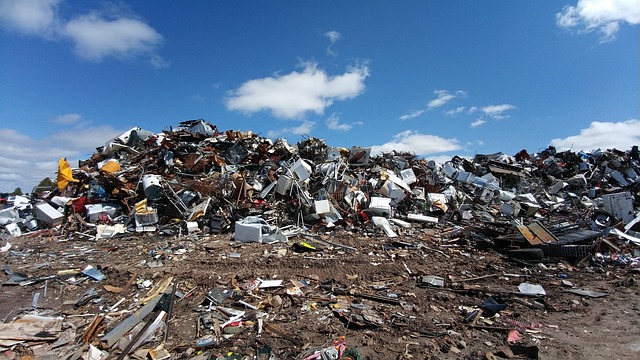BS EN 12511 Waste Reactivity Assessment
The BS EN 12511 standard is an internationally recognized protocol that evaluates the reactivity of waste materials, especially hazardous and industrial wastes. This testing ensures compliance with environmental regulations by assessing whether a waste material will react violently under certain conditions. Understanding the reactivity of waste is crucial for safe handling, transportation, and disposal.
The test method outlined in BS EN 12511 involves subjecting a sample to controlled temperature and pressure environments that simulate real-world storage or transport scenarios. The purpose is to determine if the material will undergo exothermic reactions capable of causing fires or explosions. This information is vital for waste management professionals, ensuring they can manage hazardous materials safely.
In practice, this assessment requires precise specimen preparation, where the waste sample must be accurately characterized according to its chemical composition and physical properties. The testing apparatus includes a pressure vessel equipped with sensors to monitor temperature and pressure during the reaction test. Once the sample is placed in the vessel, it's subjected to specified conditions—typically between 10°C and 50°C, depending on the waste type.
The reactivity assessment aims at providing insights into how different factors influence a material’s behavior under stress or heat. For instance, temperature changes can significantly alter the chemical stability of hazardous substances. By understanding these dynamics, waste management companies and industries can better predict potential risks associated with handling such materials.
Compliance officers will find this service particularly useful when dealing with waste that falls under strict regulatory frameworks. The results from BS EN 12511 provide critical data needed to ensure compliance with international standards like ISO, ASTM, and IEC. Furthermore, these tests are essential for R&D engineers working on safer formulations of hazardous materials.
For procurement teams responsible for sourcing waste products or by-products, knowing the reactivity helps in selecting suppliers who adhere to stringent safety protocols. The test also aids quality managers in setting internal standards that align with external regulations, thereby protecting both their organization and the environment from potential hazards.
- Why Choose This Test: BS EN 12511 offers a robust framework for assessing waste reactivity, ensuring compliance with stringent international standards. It helps identify risks early in the management process, enhancing safety protocols.
- Quality and Reliability Assurance: The standardized procedures ensure consistent results, making it easier to compare data across different facilities or over time. This consistency builds trust among stakeholders and regulatory bodies.
The BS EN 12511 reactivity assessment plays a pivotal role in safeguarding public health and the environment by preventing accidents involving hazardous materials. It supports sustainable practices within industries dealing with waste management, recycling, and disposal.
Why Choose This Test
- Compliance with International Standards: BS EN 12511 ensures that waste management practices comply with stringent international regulations, providing a benchmark for global consistency.
- Precise Safety Data: The test provides detailed insights into the reactivity of hazardous materials, enabling informed decision-making regarding their safe handling and disposal.
- Environmental Protection: By identifying potential risks early in the process, this assessment helps prevent environmental contamination or accidents that could harm ecosystems.
The BS EN 12511 reactivity assessment is a critical tool for ensuring safety in waste management. It offers precise data that can guide industry practices towards more sustainable and compliant operations.
Quality and Reliability Assurance
- Precision in Measurement: The test apparatus uses advanced sensors to measure temperature, pressure, and other parameters accurately, ensuring reliable results.
- Consistent Protocols: Standardized procedures guarantee that each test follows the same protocol, leading to consistent outcomes across different facilities or over time.
The high level of precision and consistency in BS EN 12511 reactivity assessments builds trust among stakeholders and regulatory bodies. This reliability is essential for maintaining quality standards in waste management and recycling processes.
International Acceptance and Recognition
Better known as the ISO/TS 8973 standard, BS EN 12511 has gained widespread acceptance across various sectors due to its rigorous approach to evaluating waste reactivity. This standard is widely recognized by international regulatory bodies and industry leaders alike.
Many countries have adopted this protocol as part of their national standards, ensuring that the same level of safety and reliability applies globally. The global recognition of BS EN 12511 underscores its importance in promoting best practices within waste management and recycling industries worldwide.





